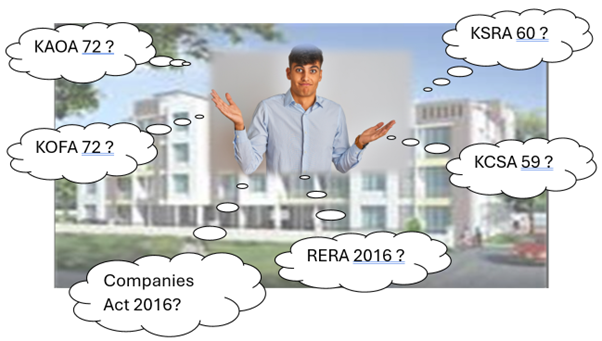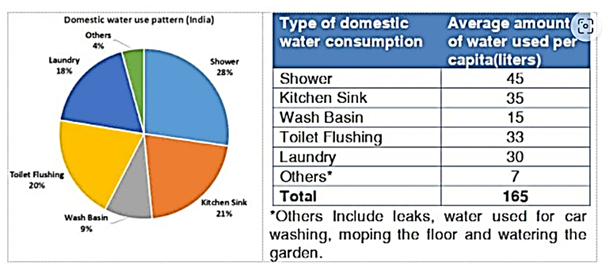How Consensus Building can help residential communities take better decisions
- Kevin Desouza
- Apr 25, 2024
- 4 min read

Democratic functioning has long been declared the ideal when it comes to running groups of people who hold equal status and joint ownership of bodies. In India, besides of course in national, state and even village governance, we find democratic principles are fundamental to the harmonious running of corporates, non-government organisations, cooperatives and residential communities. Our residential communities use such principles irrespective of whether they are run under cooperative housing frameworks or as apartment associations.
We all know the basics – a few leaders who understand the needs of the people, stand for elections, and those who are most voted for, are given seats in councils which take decisions. Within these councils, decisions are debated and are approved if they find favour with a majority of the members. In many cases, the Chairperson holds the deciding vote, so if the votes of the council are evenly split, his opinion decides the matter.
Seems fair, right?
But have you noticed how many people around us do not bother to vote in elections, because it wouldn’t make a difference? When we vote for leaders, we are handing over the power to make decisions, to a small elite who may have very different interests. And we end up ruing the fact that most areas of society are ruled by power, status and money, not through democracy. If we are in small numbers, like the aged or physically challenged, we resign ourselves despite knowing there are laws which provide us individual rights. Why would we endure long drawn cases in court to fight deeply entrenched and powerful people, right?
One could suggest mass voting on decisions (instead of relying on the leaders in a council) and it’s true that this is very possible in today’s digital world and can enable even controversial decisions to be taken in a minimum amount of time. But that doesn’t mean the decision will be a wise one, or even morally acceptable. After all, at one time, the majority of Europeans and North Americans supported the ‘right’ to hold slaves.[i] Majority voting also divides people into winners and losers, with the losers feeling disempowered and angry.
Building a consensus provides a way in which we can reach a solution which may not be favoured by everyone (as in achieving unanimity), but is acceptable to everyone. It means applying the principles of respect and equality to every individual and choosing solutions everyone can live with. We unconsciously try to follow these with our partners, friends and family. If we were to eat out for a celebration, and most of us liked chicken pizzas, and a few of us were vegans, we would choose a restaurant which had something for the latter too. Right?
But, we tend not to apply that to the unknown members of our communities, maybe because we don’t care so much, or we don’t even know their needs or because we feel the need to fight for the little that everyone has to share. But is it possible to overcome these barriers that prevent us from harmonious living?
It very much is. Consensus is not a new idea. Variations of consensus have been tested and proven around the world and through time. On the American continent non-hierarchical societies have existed for hundreds of years. Before 1600, five nations - the Cayuga, Mohawk, Oneida, Onondaga, and Seneca - formed the Haudenosaunee Confederation, which works on a consensual basis and is still in existence today.[ii]
Within the co-operative movement, many housing co-ops and social enterprises use consensus successfully: prominent examples include Suma, a major UK wholefood wholesaler; and Radical Routes, a network of housing co-ops, social centres and workers’ co-ops in Britain.[iii]
In India, the National Cooperative Housing Federation, New Delhi provides deep insights into the principles and functioning of cooperative housing societies. [iv] While consensus building is not specifically mentioned in their literature, they are indirectly implied by the principles of mutual help and equality of members.[v]
How is the process of consensus building different from achieving a majority vote?
In a majority vote, a proposal is presented to the body and each member votes either for or against it and in some cases, they could abstain from voting. In consensus building, the issue is first broadly discussed, with all members being allowed to share their perspectives. This is followed by some idea-storming for solutions, finding common grounds, modifying possible solutions to accommodate everyone’s needs and then putting them to vote. If most recommend the proposal, and the remaining do not find any good reason to oppose (block) it, a consensus may be declared. Those in the latter agree to let the proposal pass through but could wish to stand aside ( unwilling to help implement it) or declare reservations (which need to be recorded). If the group confirms there is sufficient active agreement and that the stand-asides and reservations are acceptable, they proceed with the proposal.
Of course, this can be time consuming and will need participation of all sections of the body of people. It will also need empathy and a deep sense of commitment. But the rewards can be well worth it - an outcome which brings people closer together, with more cohesion and mutual support and even results which exceed the sum of their individual contributions! The best part is that with today’s digital media, it is now becoming possible to do it cheaply, quickly and conveniently.
Notes:
[i] Seeds for Change Lancaster Co-operative ltd; Max Hertzberg; Rebecca Smith; Rhiannon Westphal. A Consensus Handbook: Co-operative decision-making for activists, co-ops and communities (pp. 9-10) Kindle Edition.
[ii] Ibid. (p. 11).
[iii] Ibid. (p. 11).
[iv] See their website The National Cooperative Housing Federation of India (NCHF) (nchfindia.net) for more information.
[v] You and your Housing Cooperative; ML Khurana, May 2009, (p 16).



Consensus building is definitely the way forward in more sensitive matters..